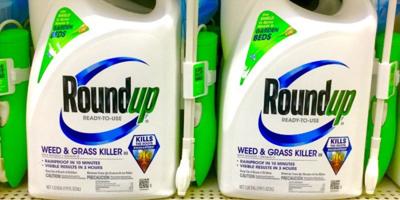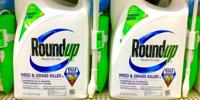
The active ingredient in the weed-killer Roundup caused multiple types of malignant and benign tumors in rats that were given only doses of the chemical considered safe by European regulators, a new study concludes.
But Bayer, the parent company of Roundup manufacturer Monsanto, called the findings of the two-year study conducted by Italy’s Ramazzini Institute highly questionable.
“As an example, it reported zero hematopoietic and lymphatic cancers across all control animals, which is highly implausible and contrasts with historical data which show that these tumors occur naturally in the type of rats that the study says were used,” Bayer told the Southern California Record in an emailed statement.
The animal subjects, which were given doses of the chemical glyphosate or two common glyphosate-based herbicides (GBHs), displayed tumor incidences that were low, according to Bayer. The highest incidence for leukemias was 1.96%, the company said.
“This percent incidence aligns with historical data for naturally occurring tumors for this type of rats,” the Bayer statement says.
The study, which included participation from Boston College and Mount Sinai, exposed Sprague-Dawley (SD) rats to glyphosate through both drinking water and during the rats’ gestation. Compared to control groups, the treated rats displayed significant dose-related trends involving “multiple benign and malignant tumors of blood, skin, liver, thyroid, nervous system, ovary, mammary gland, adrenal glands, kidney, urinary bladder, bone, endocrine pancreas and circulatory system,” the study published in the journal Environmental Health states.
Most of the tumors observed in the treated animals are rare in SD rats, with a “background incidence” of less than 1%, according to the June 17 study.
“Notably, approximately half of the deaths from leukemia seen in the glyphosate and GBHs treatment groups occurred at less than one year of age,” the authors of the study said. “By contrast, no case of leukemia was observed in the first year of age in more than 1,600 SD historical controls in carcinogenicity studies” conducted by the institute and the U.S. National Toxicology Program.
Other non-active ingredients in glyphosate-based herbicides may increase the carcinogenicity of glyphosate, especially in the case of leukemia, according to the study.
Bayer contends that the institute has a long record of making deceptive claims about the safety of certain products, including artificial sweeteners. In addition, the federal Environmental Protection Agency concluded that past studies conducted by the institute were deficient in scientific quality for the agency’s registration review process, according to Bayer.
“The EPA has retracted risk assessments that relied on Ramazzini Institute data regarding other substances, and EFSA (European Food Safety Authority) has publicly expressed its frustrations with the institute’s lack of transparency after it claimed to find adverse health effects caused by artificial sweeteners,” the company said in its statement.
EPA, EFSA and health authorities in Germany, Australia, Canada, New Zealand, Japan and other nations have concluded that glyphosate can be used safely and that the chemical does not cause cancer, Bayer said.
But the institute argues its most recent findings about glyphosate dovetail with the findings of the International Agency for Research on Cancer (IARC) in 2015 about glyphosate being a probable human carcinogen.
Although Monsanto / Bayer has settled nearly 100,000 Roundup lawsuits through the payout of $11 billion, a total of 67,000 cases remain, and new lawsuits continue to be filed, according to the Miller & Zois law firm. These cases are in state courts as well as in federal multidistrict litigation in California, where more than 4,000 such cases have been consolidated.






